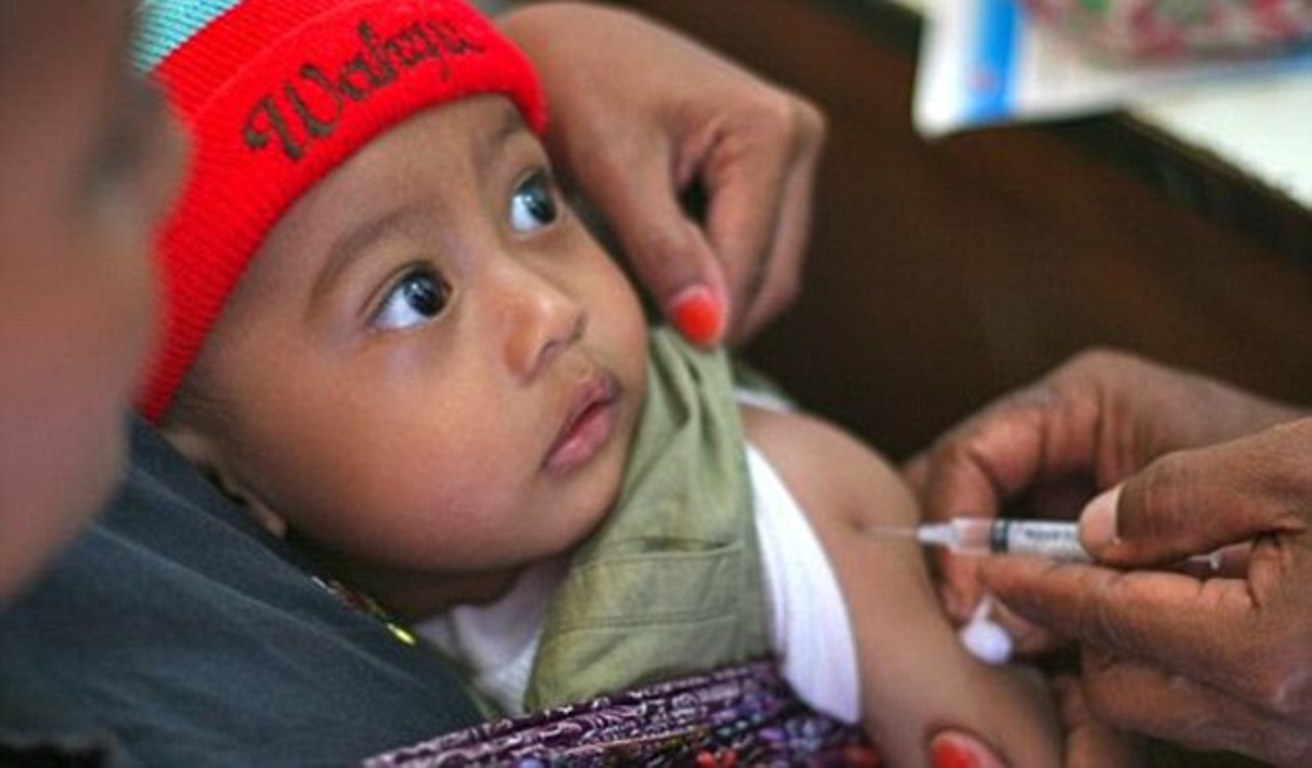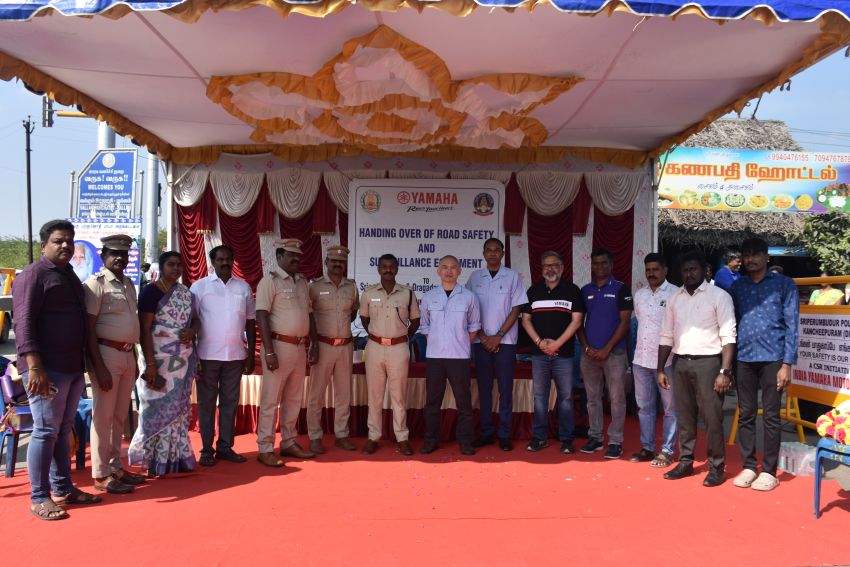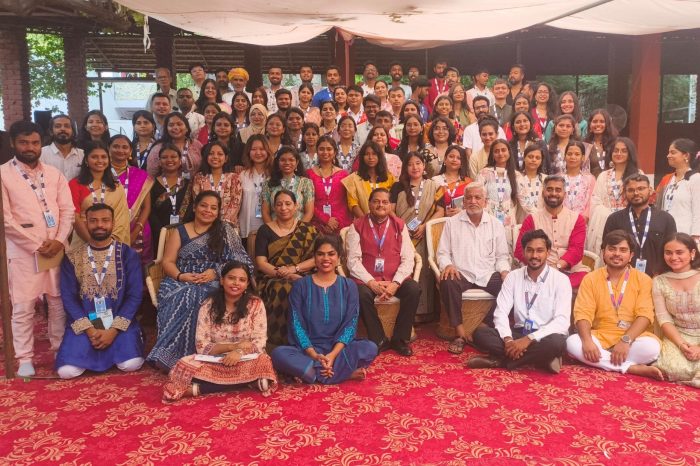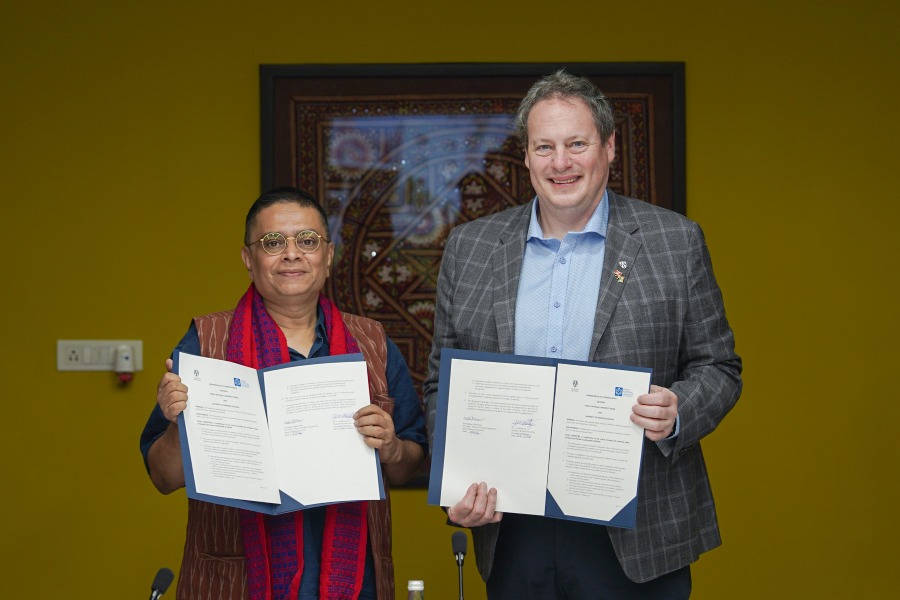New Delhi, July 24, 2023. Global immunization services reached 4 million more children in 2022 compared to the previous year, as countries stepped up efforts to address the historic backsliding in immunization caused by the COVID-19 pandemic.
According to data published by the World Health Organization (WHO) and UNICEF, in 2022, 20.5 million children missed out on one or more vaccines delivered through routine immunization services, compared to 24.4 million children in 2021. In spite of this improvement, the number remains higher than the 18.4 million children who missed out in 2019 before pandemic-related disruptions, underscoring the need for ongoing catch-up, recovery and system strengtheningefforts.
The vaccine against diphtheria, tetanus, and pertussis (DTP) is used as the global marker for immunization coverage. Of the 20.5 million children who missed out on one or more doses of their DTP vaccines in 2022, 14.3 million did not receive a single dose, so-called zero-dose children. The figure represents an improvement from the 18.1 million zero-dose children in 2021 but remains higher than the 12.9 million children in 2019.
“These data are encouraging, and a tribute to those who have worked so hard to restore life-saving immunization services after two years of sustained decline in immunization coverage,” said Dr Tedros Adhanom Ghebreyesus, WHO Director-General. “But global and regional averages don’t tell the whole story and mask severe and persistent inequities. When countries and regions lag, children pay the price.”
“Beneath the positive trend lies a grave warning,” said UNICEF Executive Director Catherine Russell. “Until more countries mend the gaps in routine immunization coverage, children everywhere will remain at risk of contracting and dying from diseases we can prevent. Viruses like measles do not recognize borders. Efforts must urgently be strengthened to catch up children who missed their vaccination, while restoring and further improving immunization services from pre-pandemic levels.”
"It is incredibly reassuring, after the massive disruption wrought by the pandemic, to see routine immunization making such a strong recovery in Gavi-supported countries, especially in terms of reducing the number of zero-dose children,” said Dr Seth Berkley, CEO of Gavi, the Vaccine Alliance. “However, it is also clear from this important study that we need to find ways of helping every country protect their people, otherwise we run the risk of two tracks emerging, with larger, lower middle-income countries outpacing the rest.”
Countries with steady, sustained coverage in the years before the pandemic have been better able to stabilise immunization services since. The early stages of recovery in global immunization have not occurred equally, with the improvement concentrated in a few countries. Progress in well-resourced countries with large infant populations, such as India and Indonesia, masks slower recovery or even continued declines in most low-income countries.
India’s commitment, investment and consistent efforts to vaccinate children have yielded significant results, as revealed by the latest WUENIC report. In 2022, India has successfully reduced the number of zero-dose children to 1.1 million from 2.7 million in 2021, covering an additional 1.6 million children with lifesaving vaccination.
“The progress in routine immunization coverage brings promise of healthy life for children in India. It shows the dividends of the government's evidence-based catch-up campaigns and an effective primary health care and immunization structure that helped India recover from the pandemic-induced backslides in 2020-2021. The Government of India’s commitment also contributed to a leap forward by further reducing the zero-dose children to 1.1 million. Efforts such as the fourth Intensified Mission Indradhanush (IMI) and India’s consistent provision of comprehensive Primary Health Care services are enabling this progress,” said Cynthia McCaffrey, UNICEF India Representative.
“Reaching every child is a real possibility as India continues to prioritise strategies, such as catch-up campaigns. UNICEF proudly supports the government in its effort to reach missed children in vulnerable communities, the urban poor, migrants, and children living in hard-to-reach areas,” McCaffrey said.
Earlier UNICEF's State of the World's Children (SOWC) 2023 report acknowledged India among countries with the highest vaccine confidence. This is a testament to India's successful social mobilization and strategic communication in addressing vaccines hesitancy and raising confidence in the importance of immunization.
















.jpg)



